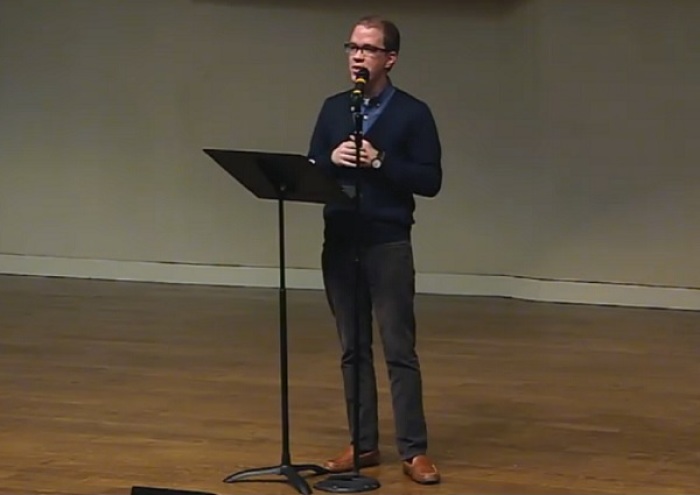Author Wesley Hill Talks About Practicing Chastity Within Both LGBT and Christian Communities
Christian writer and intellectual Wesley Hill, who identifies as gay, has entered the fray of an increasingly meshed LGBT and church climate through his decision to pursue chastity.
The author of "Washed and Waiting" and professor at Trinity School of Ministry spoke about his decision and how his fellow unmarried straight and LGBT Christians ought to set boundaries at S1NGLE, a conference organized by Pastor Tim Keller's Redeemer Presbyterian Church's Family Ministries on Saturday.

Hill said that during adolesence, he first realized he would be forced to make some serious decisions about his sexuality and faith.
"I realized when I was going through puberty that I was someone who was experiencing nearly exclusive same-sex attraction. I was a Christian at the time and I knew I wanted to remain a Christian. I also had been pretty well-formed in scripture and knowing scripture, as hard as I tried to convince myself that scripture would encourage me to enter into a same-sex marriage, I couldn't persuade myself that that's what Scripture was saying," said Hill, who quickly realized that the ramifications of his beliefs would likely leave him with life-long celibacy.
Consequently, Hill realized it would be necessary for him to conceptualize what type of implications and positive effects celibacy might have in his own life.
"I think there's an overarching idea or principle that runs through scripture that when God gives someone a calling, it is never primarily about orienting your life around saying no to something," Hill said. "A calling is not about constructing a practice of abstention from something; a calling or a vocation…is about fundamentally saying yes to something."
Hill added that this did not mean it was somehow trivial that Christians leave sex exclusively to male/female gender marriage, but that it was important to recognize that chastity also had a positive action.
"Whatever you abstain from in the course of pursuing something, that is important, but it's not the most important thing. It's not the thing that you build your passion around. It's not the thing that you order your affections around," said Hill.
To illustrate his point, Hill shared an example from British writer G.K. Chesterton who wrote that through drawing with "white chalk on brown butcher paper," he had come to realize that white "is not the mere absence of color; it is a shining and affirmative thing."
In that way, Hill suggested one should not see virtue and chastity, in Chesterton's words, as the "abstention from moral wrong," but rather as "something flaming, like Joan of Arc."
Hill conceded that it was likely that many viewed the practice of chastity as a "mutilation."
"[We see our singleness] fundamentally as it's about renunciation. Fundamentally it's about building your life around an abstention," he said. "Whereas your married friends or your friends who are parents, they get to build something positive. They get to out of themselves in love for their spouse or in love for their children or their extended family but we who are single, we who are called to chastity, we have to build our lives around something negative."
So what should the single life establish itself around?
The call of chastity, Hill argued, was once in which individuals would "pour out [their] lives for others."
"What would it mean for me in my chastity, in my obedience as a single person, to say to myself over and over, 'I'm called to friendship. I'm called to love. I'm called to brother and sister relationships in the body of Christ?'" said Hill. "I think that has the potential to shift my angle of vision and change the way I feel about my singleness."
Hill suggested elevating friendship above the level of "mutual interest that may sustain us for a couple years." Instead, he proposed inserting "a kind of given-ness to our friendships that means we can take them as genuine loves in their own right."
"They're not a second-class status because they're not marriage. They're not second-class status because they're not parent-child relationships. They are fully honorable loves in their own right."




























